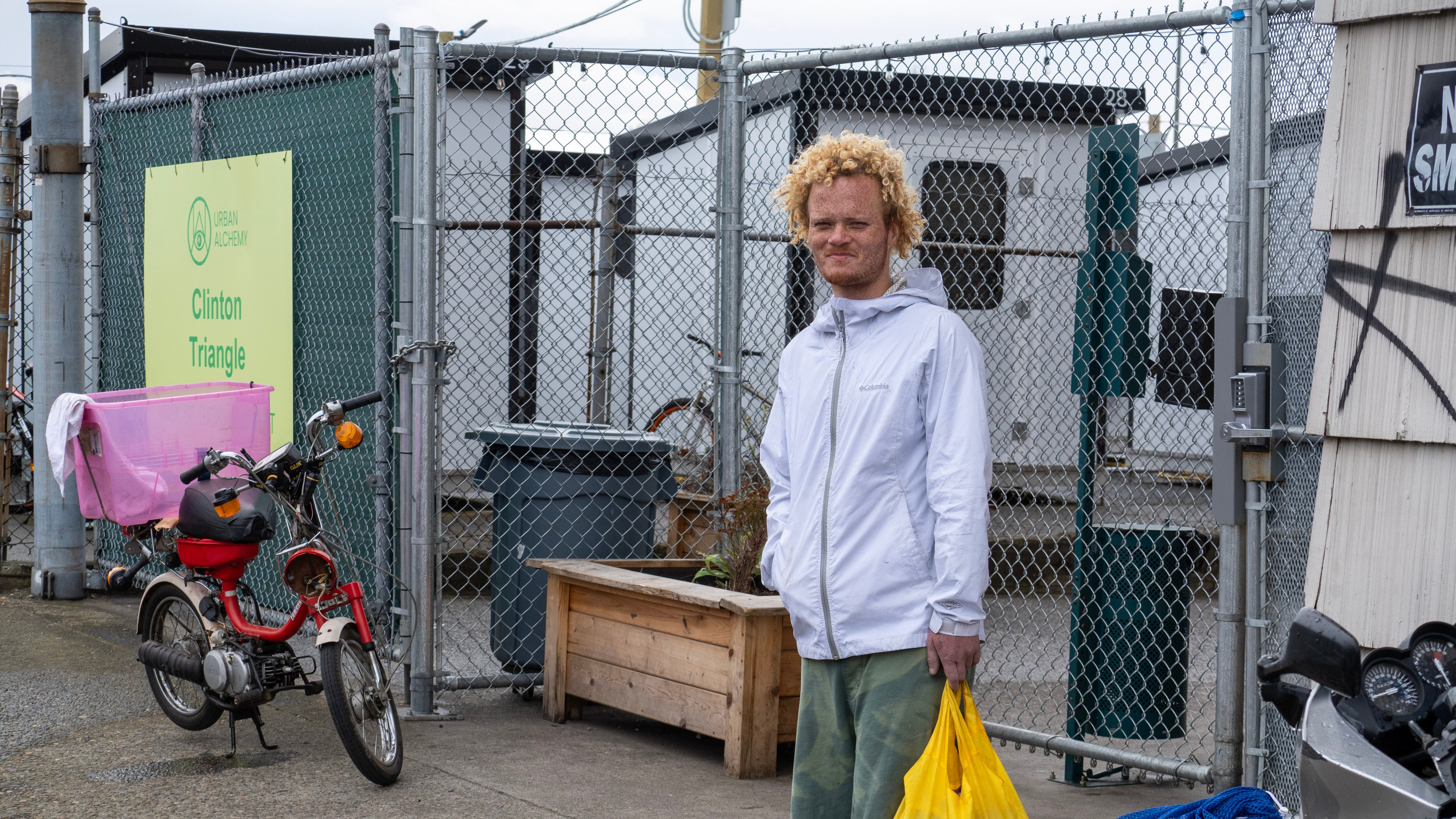Last week, the city of Portland told a longtime shelter operator it had not been awarded a contract to continue managing one of the city’s tiny pod villages in Southwest Portland.
Leaders of that nonprofit, Sunstone Way, say they were surprised. Since 2022, they’d run the tiny pod village in Multnomah Village—as well as two other villages—without ever having to reapply. And the contract had been with Multnomah County, not the city.
A city employee wrote in an April 4 email to Sunstone’s CEO that the city was in negotiations with Urban Alchemy to take over the site, which expanded last fall from 28 pods to 100 pods. San Francisco-based Urban Alchemy has been the city’s chosen shelter operator since 2023, when the city signed a five-year, $50 million contract with the nonprofit to run its larger pod villages, called temporary alternative shelter sites, or TASS. Urban Alchemy’s entrance into Portland dismayed some local nonprofits that had historically managed homeless shelters through contracts with Multnomah County.
In the following days, it became clear the city’s decision to switch providers hints at larger tensions between city and county leaders. In fact, a long-planned transfer of safe rest villages and TASS from city to county oversight on July 1, 2025, has been paused indefinitely.
It also shows the city is continuing to scale up its shelter system at a rapid pace, with or without the county in tow, and has narrowed in on one provider to run larger-scale shelters.
Here are two unanswered questions the city and county face as they tumble toward the coming fiscal year.
WHO’S RESPONSIBLE FOR FUNDING THE CITY’S POD VILLAGES?
WW first reported in February that the city and county were engaged in a legal disagreement over which government was responsible for financing the city’s safe rest villages and TASS. In all, that’s about 750 tiny pods and RV pads, each home to one or two people who previously lived on the streets.
The legal dispute came at an inopportune time: The city said it faced a $65 million general fund shortfall, and the county reported a $104 million deficit in homeless services funding.
The city argued that, per their interagency agreement to manage homelessness, the county was legally responsible for funding the shelters as of July 1, 2025. The county disagreed.
The two governments have yet to come to an agreement about who is legally responsible.
While that issue may not be of great consequence this year—the city says it’s cobbled together enough funding with dollars from the state and its own coffers as well as $10 million from the county to keep the shelters running this year—the disagreement will need to get hashed out for future budget cycles.
WHICH GOVERNMENT SHOULD OVERSEE THE SHELTERS?
A second unresolved question is which government should oversee operations at the safe rest villages and TASS.
Currently, the city of Portland contracts directly with Urban Alchemy to operate three TASS sites, which are significantly larger than the villages. Meanwhile, the county contracts with local nonprofits to run the safe rest villages. (Technically, when Sunstone’s village in Multnomah Village expanded from 28 to 100 pods last year, the city rebranded it as a TASS.)
But that’s changing this summer. The city put out requests for proposals in February to operate all of the safe rest villages, and additional RFPs for the city’s planned overnight and day shelters, which, for the most part, have yet to materialize. (Mayor Keith Wilson wants to build an additional 1,250 nighttime shelter beds within the next year. He’s currently seeking $28 million from various sources, including the state and Metro, to fund them.)
That would suggest the city wants to take direct operational control of all of the pod villages—not just TASS.
When the city and county signed the latest intergovernmental agreement regarding the Joint Office of Homeless Services last year, they agreed the city would transfer control of all tiny pod sites and TASS to the county as of Jan. 1, 2025. Officials agreed last fall to extend that transfer to July 1, 2025.
But more recently, Mayor Wilson and County Chair Jessica Vega Pederson agreed this spring to delay the transfer “indefinitely,” according to city spokesman Rob Layne, “as both governmental groups negotiate budgets and responsibilities.”
“Our priority is maintaining maximum capacity, expanding that capacity, and relying on proven strategies that have worked in Portland and our peer cities,” Wilson says. “We’ve mutually agreed to delay transferring these sites to better focus on this goal.”
